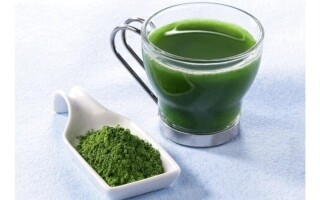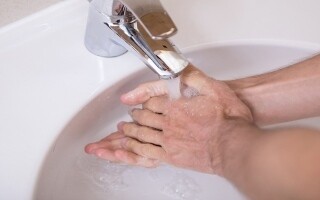
The local center for consumer protection in the German state of North Rhine-Westphalia recommends thoroughly researching the information on the composition, recommendations for preparation and consumption, indicated on the packaging of Japanese matcha tea before purchasing it.
Experts based their conclusions on the fact that matcha tea, which is distinguished by its green color, may contain aluminum depending on the growing location, which could lead to long-term harm to the nervous system and kidneys when consumed in large quantities. Also, matcha tea may contain lead, which poses a risk to the kidneys, heart, and blood vessels.
As for the recommended dosage, German experts advise not to consume green matcha tea more than three times a day, while not consuming more than one gram of matcha powder per cup. It should be noted that matcha tea is not recommended for children due to its high caffeine content.
Matcha tea, with high caffeine content, is distinguished by its green color.















